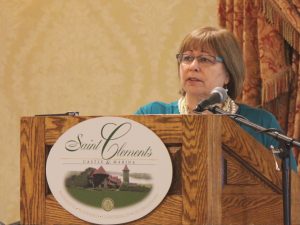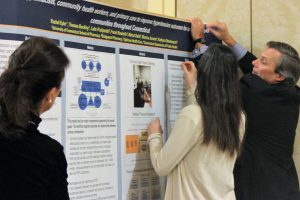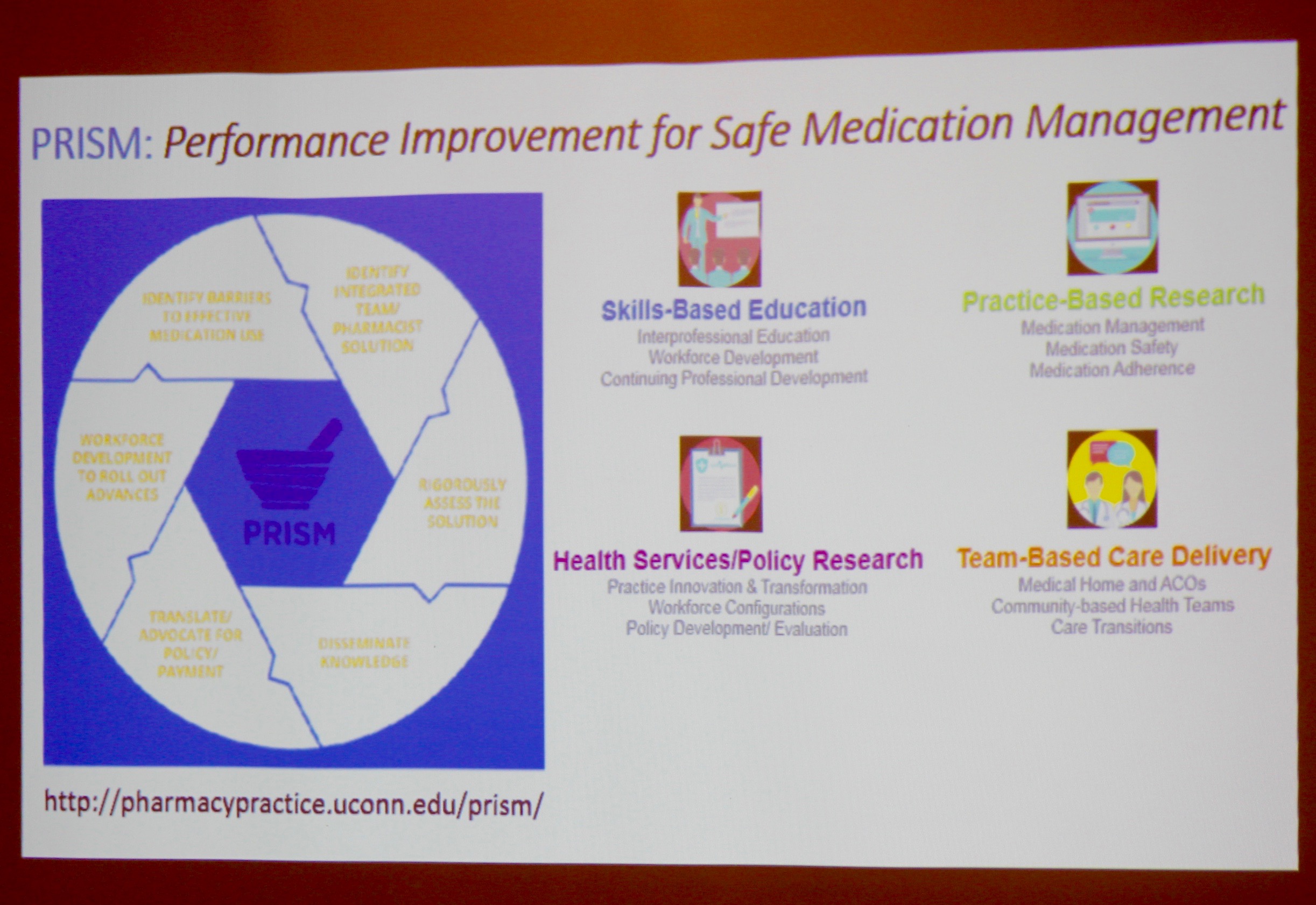The primary takeaway from the 2017 PRISM conference held on a crisp fall day in October was this: There has never been a better time, nor has there

ever been more need, for collaboration in the delivery of appropriate, safe, affordable medication in a world in which the healthcare delivery system becomes more complex by the day.
PeRformance Improvement for Safe Medication Management – PRISM for short – is an effort by the Department of Pharmacy Practice in the UConn School of Pharmacy to assure the delivery of safe and effective medication use through a variety of approaches. These include interdisciplinary educational programs, community-based research collaborations, healthcare transformation policy opportunities, and team-based care delivery.
In speaking about PRISM, C. Michael White, Department Head and Professor of Pharmacy Practice says, “We inherited a healthcare system that is fractionated, siloed, and rigidly applied. It is less focused on optimal patient outcomes than on fees paid for services and products.”
The result, White says, is patients not being triaged into the healthcare system soon enough to prevent disasters, rampant non-adherence to medical and lifestyle modifications, and adverse events that could be prevented by pharmacist-inclusive team-based care.
He says, “This symposium really highlighted how far we need to go in order to create an integrated and flexible healthcare system and the very promising work showing how pharmacists can cost-effectively triage people into the system, prevent drug misadventures, monitor for medication safety and efficacy outcomes, and support patients as they work through the issues attenuating medication adherence.”

The theme of this year’s conference, held in Portland, Conn. was: Value of Medicines, Value of Pharmacists: Better Care and Outcomes at Lower Costs. Invitations were extended to health care leaders and change agents in provider organizations, state agencies, consumer advocacy organizations, health professional associations, payers, and academia. There were approximately 60 invitees in attendance.
Keynote speakers included Susan Dentzer, president and chief executive officer of the Network for Excellence in Health Innovations; Mark Schaefer, Director of the CT State Innovation Model Program Management Office, and Sean Jeffery, Director of Clinical Pharmacy Services at Hartford Hospital Integrated Care Partners.
Each in their own way spoke about the need for pharmacists on integrated, community-based care teams to improve patient outcomes while lowering total health care costs.
Additionally, there were two panel discussions where issues covered included topics as diverse as innovative pharmacist services in hospital outpatient clinics, working with a family practice physician office/ACO, and the role of a population health team. Also, a new model for community pharmacist payment, and medication therapy management services in community pharmacies.
Marie Smith, the Henry A. Palmer Endowed Professor in Community Pharmacy Practice, organizer of this year’s conference, says that she was impressed by the commitment of the attendees, especially following afternoon roundtable sessions where participants were able to take part in a variety of discussions.
These included the role of pharmacists in behavioral health services, primary care practices, and accountable care health teams, pharmacist e-consults; opioid safety programs and strategies, and medication optimization for patient populations with complex health care needs and health disparities.
Smith said, “The symposium presenters all shared their experiences with innovative services where pharmacists are integral and accountable members of the health care team. They demonstrate that when pharmacists have shared responsibility for comprehensive medication optimization and management – especially for patients with modifiable medication risks – they can impact the quality of patient care, improve individual patient and population clinical outcomes, and demonstrate successes in value-based and alternate payment models.”

Attendees were uniformly positive about the benefits of the conference and the opportunity it presents to discuss with colleagues ways to assure the best delivery of appropriate medical care. James Halpert, Dean of the School of Pharmacy, is a firm advocate of the goals of PRISM. He says he was especially pleased by the reaction of attendees, saying, “PRISM is one of our school’s top priorities and I have been delighted to receive very positive feedback about the conference from a number of the attendees during the past few weeks.”
According to Smith, future conferences and educational outreach are being planned. More information about upcoming events can be found on the PRISM website. Audio from the 2017 PRISM Conference can be found here.



